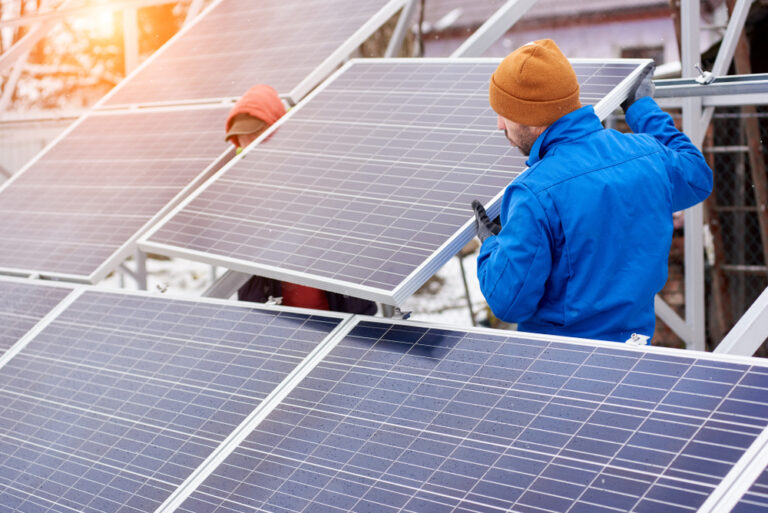Latest News
Are Solar Panels Recyclable?

The popularity of renewable energy is increasing rapidly and is most likely down to the ongoing rise in energy bills. Currently, in the UK alone roughly 1.2 million homes have installed solar panels. Whilst this number is high, there is definitely room for improvement in shifting to renewable energy sources. Homes and businesses are turning their focus to renewable energy in a bid to reduce their carbon footprint and bills. However, as the demand for solar panels continues to grow, it raises a few questions. Such as what happens to them when they reach the end of their lifespan? And are they recyclable or not?
Are Solar Panels Recyclable?
The answer to this question is both yes and no. As the material used to make PV cells contain materials like silicon and aluminium, they can be recycled. However, the process of recycling these panels is not yet as widespread as it is for other electronics. Currently, the UK only has one solar panel recycling service, recyclesolar.
The process of recycling solar panels isn’t straightforward. It’s not as simple as taking the panel apart and recycling the components. Currently, recycling procedures are not particularly effective. This means that recovering the materials might be more expensive than simply creating a new panel. Providing a sustainable waste management operation for solar panels that have fulfilled their PV life cycle is very important. We are causing a problem for future generations if we don’t have recycling systems and appropriate disposal practices in place. Recycling renewable technology just makes sense!
Are Silicon-Based Solar Panels Recyclable?
Research shows that some panels can reach an amazing 96% recycling efficiency. Depending on the type of solar panels you are recycling would determine the process used.
The first step in the recycling process is to disassemble the product and isolate the aluminium and glass components. The glass may be recycled almost entirely (95%) while the exterior components are all used to create new cell frames. The remaining materials are heated to 500°C in a thermal processing machine. This reduces the bonding between the cell elements. As a result of intense heat, the plastic covering the silicon cells evaporates leaving them free to undergo further processing. Due to the enabling technology, even this plastic is not wasted. Instead, it is utilised as a heat source for additional thermal processing.
Are Thin-Filmed Solar Panels Recyclable?
In contrast, thin-film-based panels undergo more extreme processing. Firstly, the panels are placed into a shredder. The lamination holding the inner components together breaks around 4-5 mm. Using a hammermill ensures pieces are no larger than 4-5 mm. Unlike silicon-based PV panels, the remaining substance is made up of both liquid and solid components. By using a revolving screw you can separate them. This essentially keeps the solid components spinning inside a tube as the liquid drips into a container.
To assure purity, liquids go through a precipitation and dewatering process. The end product undergoes metal processing to thoroughly separate the various semiconductor components. The semiconductor material is then reused in the final stage. This depends on the specific technique utilised to make the panels.
You can eliminate interlayer materials by a vibrating surface because they are lighter in mass. Rinsing out the substance leaves you with pure glass which is saved for remanufacturing.
Contact Griff
Would you be more inclined to proceed with the installation of solar panels at your home or business now you’re aware that solar panels are in fact recyclable?
We can help you make the shift towards better environmental choices by installing renewable energy. If you have a project in mind contact Griff today.

